In light of the coronavirus pandemic, virtually all of us have considered health-related issues. But for people facing a serious, chronic illness, such as Parkinson’s disease, multiple sclerosis, diabetes or cancer, health concerns are an everyday matter. If you’re fortunate, you may never be afflicted with such maladies, but the future is unpredictable. Of course, going through these health challenges bring physical and emotional concerns – but also financial ones. How can you prepare for them?
Essentially, you’ll need to consider four key areas: investments, insurance, legal arrangements and taxes. Let’s take a quick look at each of them:
- Investments – You’ll likely need to draw on your investments for at least some of the expenses associated with your illness. So, within your portfolio, you may want to establish a special fund devoted entirely to these costs, whether they be health care, modifications to your home, transportation and so on. A financial professional can help you choose investments for this fund, as well as make recommendations for your overall investment strategy, including techniques for boosting your income, such as adding investments that can provide an income stream that kicks in when you think your costs will rise.
- Insurance – Depending on your health status, you may be able to collect Medicare earlier than the traditional starting point at age 65. Even so, you’ll likely need to supplement it with additional coverage. But you may also want to look beyond health insurance. For example, you might be able to purchase a “chronic illness rider” that allows you to tap into life insurance benefits while you’re still alive. Or you might consider adding a “long-term care rider” to a life insurance policy; this rider offers financial benefits if you ever require daily care that you can’t provide for yourself. And some foundations, states and drug companies offer programs that can help pay for some costs that your insurance won’t cover.
- Legal arrangements – If you haven’t already done so, you may want to establish the legal documents most appropriate for your situation, such as a durable power of attorney for finances, which gives someone the authority to manage your financial affairs if you become temporarily incapacitated, possibly due to flare-ups of your chronic disease. Once you’ve recovered, you regain control of your financial decisions. You might also want to consider a health care proxy, which appoints an individual to make medical decisions for you if you can’t. In creating or revising these documents, you’ll need to consult with your legal professional.
- Taxes – You might qualify for Social Security disability payments, which, like other Social Security benefits, are taxable, so you’ll need to be aware of what you might owe. But you might also be eligible for some tax breaks related to your condition. If you still itemize tax deductions, you may be able to deduct some medical expenses, as well as certain home improvements, such as wheelchair ramps, bathtub grab bars, motorized stairlifts and so on. Your tax advisor may have suggestions appropriate for your situation.
Dealing with a chronic illness is never easy. But by considering how your illness will affect all aspects of your life, getting the help you need, and taking the right steps, you may be able to reduce the financial stress on you and your loved ones.
This article was written by Edward Jones for use by your local Edward Jones Financial Advisor.
Edward Jones, Member SIPC
Sign up to receive updates and the Friday File email notices.
Support local, independent news – contribute to The Fallon Post, your non-profit (501c3) online news source for all things Fallon.
The Fallon Post -- 1951 W. Williams #385, Fallon, Nevada 89406





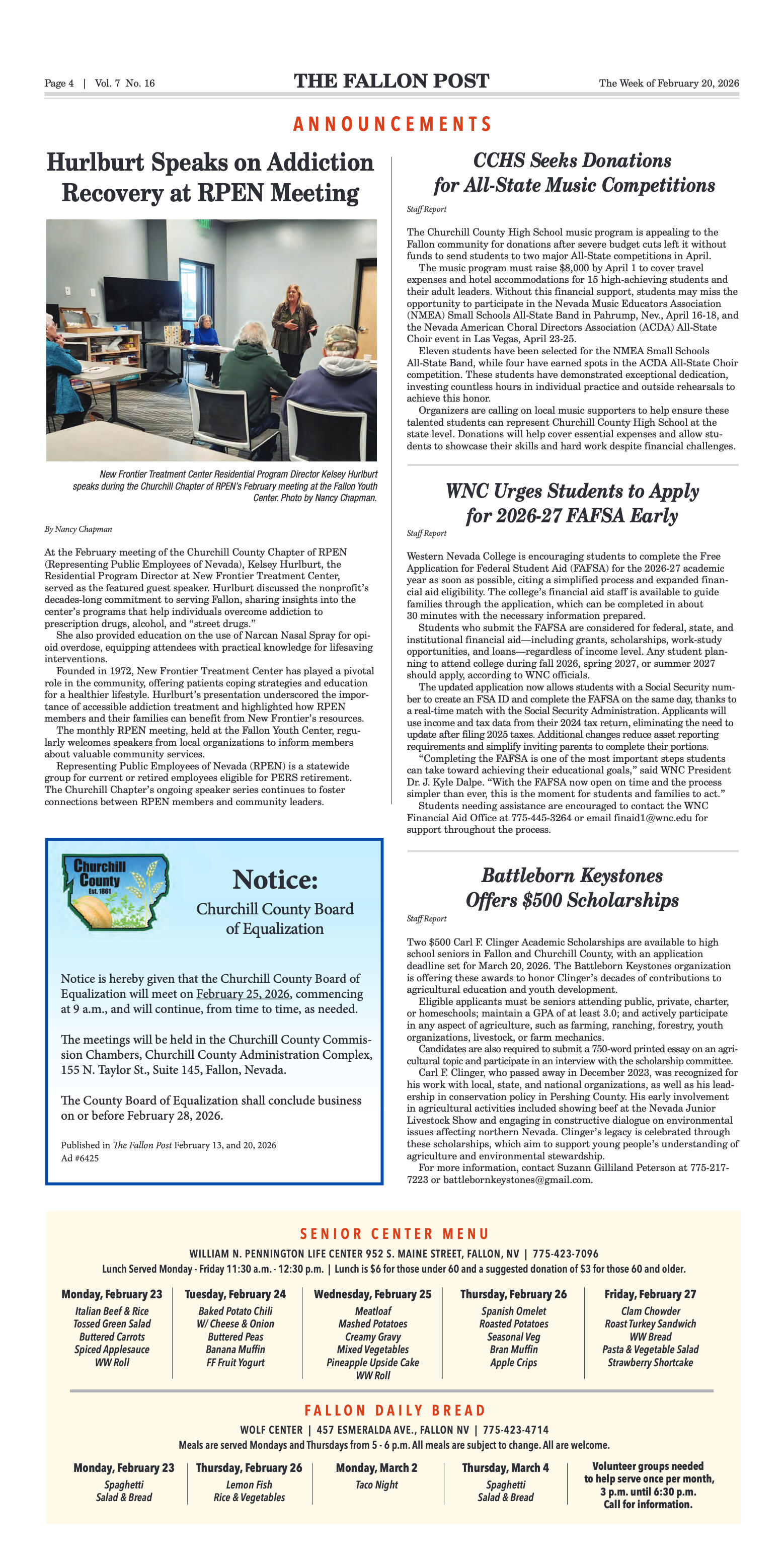
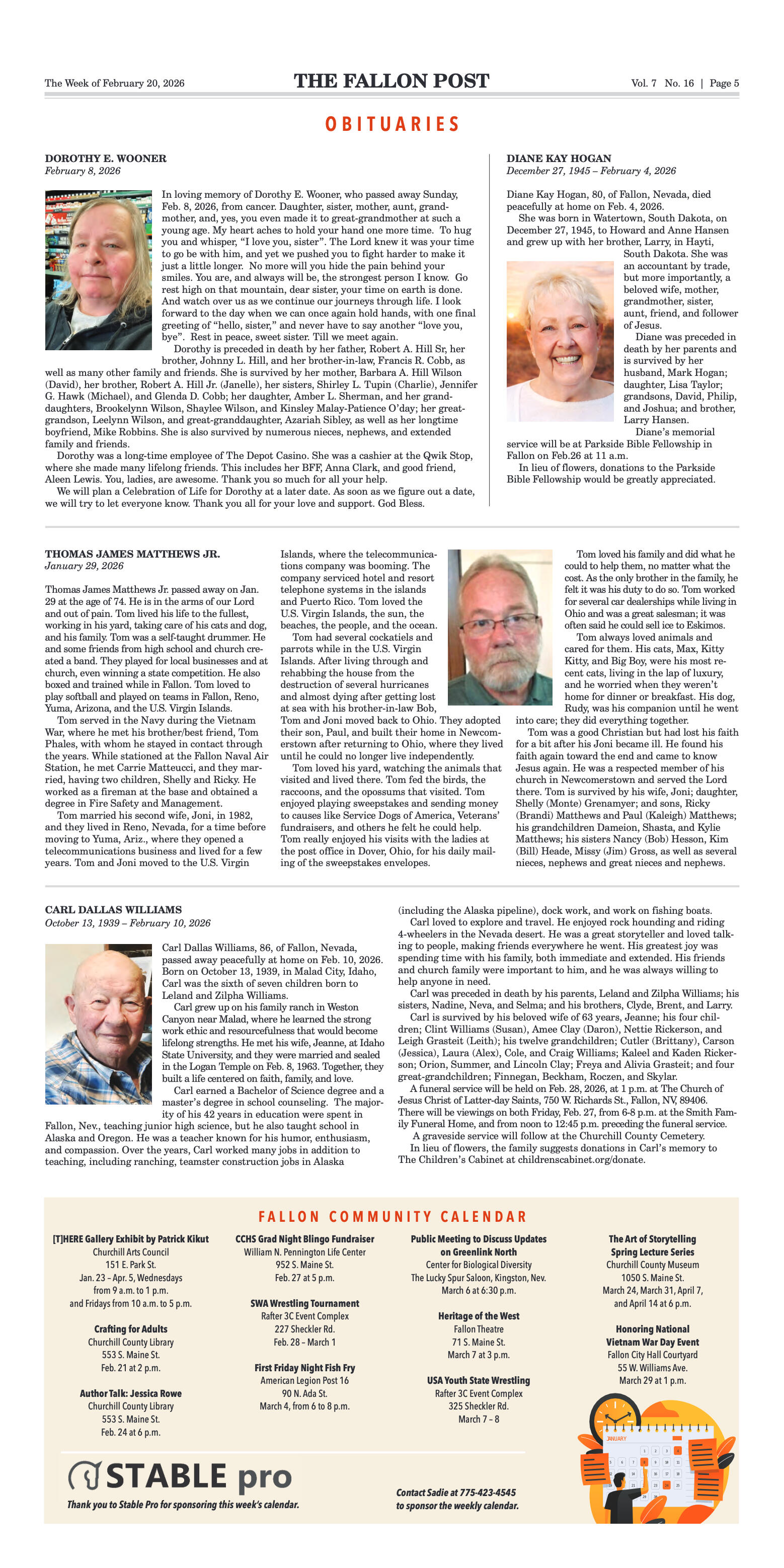
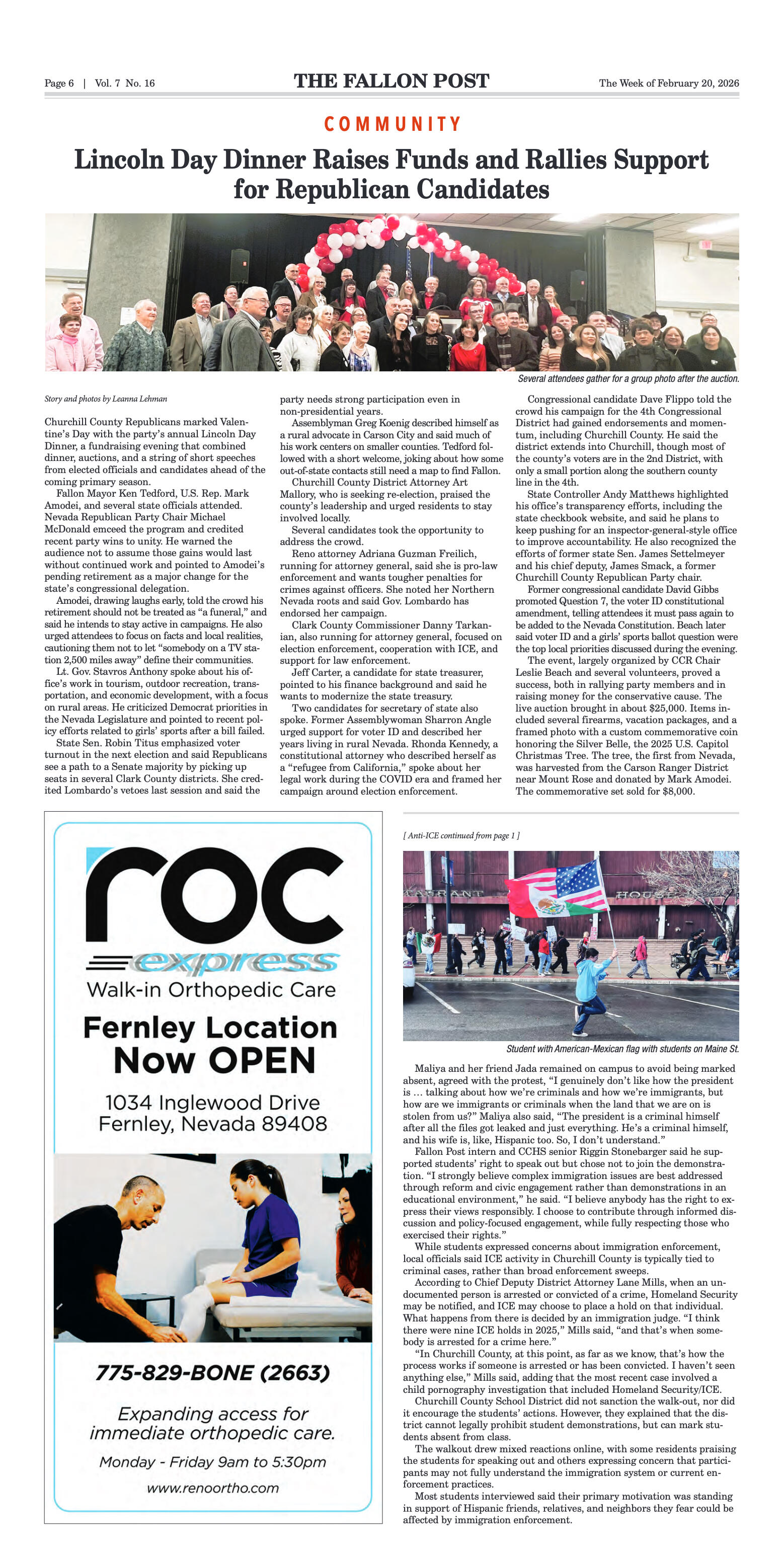


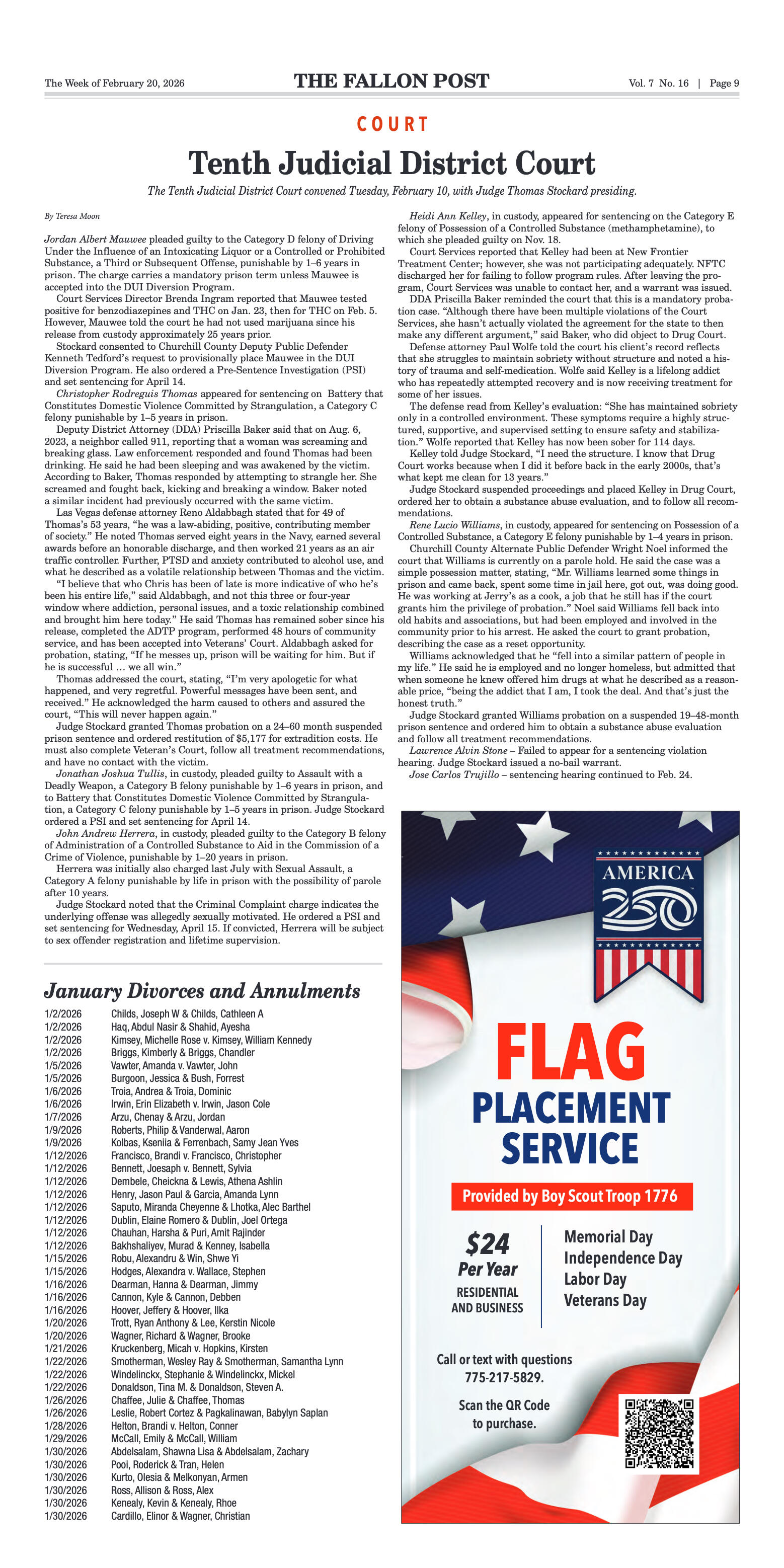






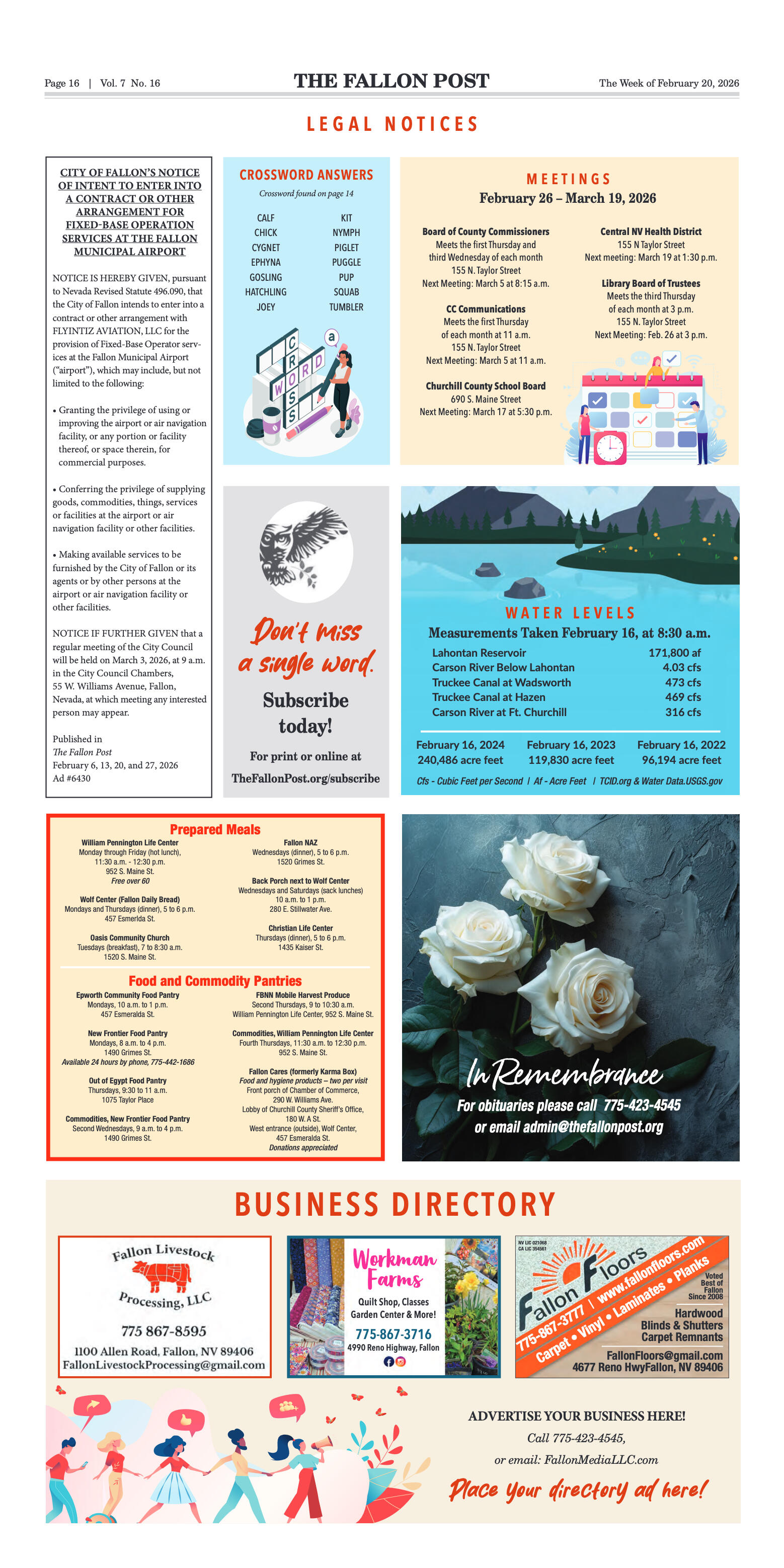


























Comment
Comments